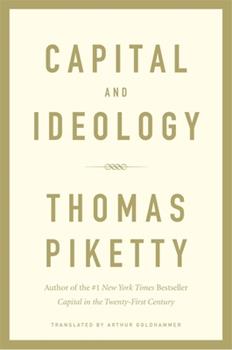 Alexander Zevin in New Left Review:
Alexander Zevin in New Left Review:
The arrival of Piketty’s latest work, Capital and Ideology, prompts a comparison with another French thinker, who also won widespread fame for a generic attack on inequality published at a time of profound economic crisis. In 1840, Pierre-Joseph Proudhon’s What Is Property? rebutted claims that the answer ‘It is theft!’ was the signal for another 1793. The proposition should be ‘recognized as a lightning rod to shield us from the coming thunderbolt’, he wrote, just as Piketty hoped his warnings that rising levels of inequality in the 21st century could be incompatible with democratic values would produce tax reforms to fend off violent upheavals comparable to those that put an end to the Belle Époque.
Mutatis mutandis, of course. For the journeyman printer, born into a family of Besançon peasants and small-traders, going barefoot to school, read: the son of ex-Trotskyist soixante-huitards, growing up in the leafy Parisian suburb of Clichy Hauts-de-Seine. For La Voix du Peuple, the World Incomes Database; for imprisonment at the Conciergerie, chairs at the lse, Berkeley and ehess; for the people’s bank, the global tax on capital. Proudhon’s pamphlet was also a slower burn than Capital in the Twenty-First Century. It took two years before scandal, prosecution and counter-polemic elevated What Is Property? to international notoriety, hailed as a ‘penetrating work’ in Marx’s paper, the Neue Rheinische Zeitung. When they met in Paris, the young German radicals did their best to educate Proudhon in political economy and the dialectic. In response, six years later, he produced the two fat volumes of his System of Economic Contradictions, or Philosophy of Poverty—drawing from Marx the stinging Poverty of Philosophy. Later, Marx would laughingly chastise himself for having infected Proudhon with Hegelianism—‘for his “sophistication”, as the English call the adulteration of commercial goods.’
More here.
